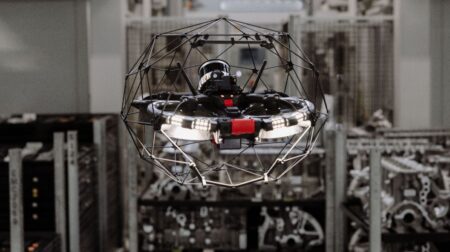Today [6 March 2023] UK Research and Innovation (UKRI) has announced an investment worth £250m in ‘the technologies of tomorrow’, including £110m for artificial intelligence (AI).
The two other major tranches of the funding will be directed towards quantum technologies (QT) and engineering biology, which will both receive £70m.
The research body hopes the funding will lead to major technological advances in diagnosing and curing diseases, converting waste into fuel, navigating without satellites, among other areas.
Professor Dame Lynn Gladden, executive chair of the Engineering and Physical Science Research Council, said: “These deep technologies will transform and improve many aspects of our economy and daily life. Their successful and ethical adoption will make a major contribution to sustainable growth, combating climate change, and improving quality of life for all.
“The UK has clear research and innovation strengths in these technologies, but others are hot on our heels, so there’s no time to lose. This funding will consolidate and improve the UK’s potential for economic advantage in these areas, including new, well-paid, high-quality jobs for the next generation.”
The funding will work through a structure of ‘technology missions’ to tackle global challenges, such as meeting net zero emissions targets, healthy ageing and energy security.
What’s more, encouraging partnerships between industry and academia is another key objective of the funding. It is expected that the £250m will be matched by private investment.
Building on both UKRI’s investments in AI and data economy and the the National AI Strategy, the AI technology missions will deploy £110m across areas such as: reducing greenhouse gas emissions by 2% by 2030; delivering trusted AI approaches in complex health data science contexts; increasing the use of AI in healthcare settings by 2030; increasing productivity by 20% in low AI maturity sectors; and an overarching investment in responsible and trustworthy AI.
Quantum technologies use quantum mechanics and have applications such as enabling the creation of clocks that are more precise, detecting objects below the ground surface and producing vastly increased computing power.
The QT mission will direct £70m of investment towards accelerating these technologies and developing quantum computing test-beds, building on UK’s previous work through the National Quantum Technologies Programme (NQTP).
The last of the three key focuses of the funding is engineering biology, which uses engineering methods to innovate and re-structure biological systems. Some applications include enabling cheaper and greener products and transforming manufacturing processes that underpin existing industries to help reduce dependence on fossil fuels.
The engineering biology mission will deploy its funding to connect industry and researchers to prove bio-based solutions to global challenges, with specific focus areas including food systems, biomedicine, clean growth and the environment.
George Freeman MP, minister of state at the new UK Department of Science Innovation and Technology, said: “We are in a global race for investment and leadership in the science, technology and innovation of tomorrow. For 40 years we have led the science and then lost the industrial investment to competitors…These technologies are key to tackling major global challenges, from discovering new cures to the diseases of ageing to reducing net zero emissions and harnessing cells as factories for new biofuels.”
All funding will be awarded and managed by UKRI on behalf of the UK government.









